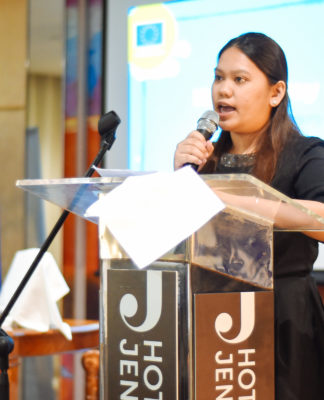THE COMMISSION on Higher Education (CHEd) sees the P1,500 installment fee among several miscellaneous fees imposed by the University this year as “quite high.”
But CHEd Chairperson Patricia Licuanan, in a chance interview at the CHEd Auditorium during the awarding of the Centers of Development and Excellence last June 4, admitted that private institutions need to raise funds to pay for expenses as they lack government subsidies being enjoyed by state universities and colleges.
“It’s always that balance. Private schools don’t get any subsidies, so how are they going to pay their teachers and buy their equipment?” she asked.
“It’s a hard balance, always, between the needs of the school and the needs of the public,” Licuanan added, noting that according to law, private higher education institutions (HEIs) like UST can freely set their fees as long as they follow the commission’s guidelines, including verification that the fees are properly distributed.
Students from private institutions are beginning to move to public institutions as a result, she said, adding that private institutions only get 60 percent of the enrollment from around 65 to 70 percent ten years ago.
Aside from the 2.5 percent increase in tuition implemented this year, the University has also raised miscellaneous fees, including a 150-percent increase on the installment fee.
Based on the schedule of fees from the Office of the Vice Rector for Finance, the installment fee went up to P1,500 from P600 per semester in previous years.
The penalty for late enrollees also increased to P1,500 from P1,000, a 50-percent increase.
Guidance and energy fees have also increased by 103 and 200-percent, respectively.
Central Student Council President Miyuki Morishita said the University should explain where the installment fees would be used.
“Since the officials of the University decided to do that, they could also be transparent on where this installment fee is going,” Morishita said.
CHEd Commissioner Cynthia Rose Bautista, for her part, said it would be difficult to determine whether or not the increase was warranted.
“They (private schools) will not survive given the money that they have, the inflation and the demands that they also pay their teachers as well,” Bautista said in a chance interview.
The law states that tuition increases must be distributed as follows: 70 percent to the salaries and allowances of both teaching and non-teaching staff, 20 percent to improvement and modernization of facilities, and 10 percent as return on investment.















